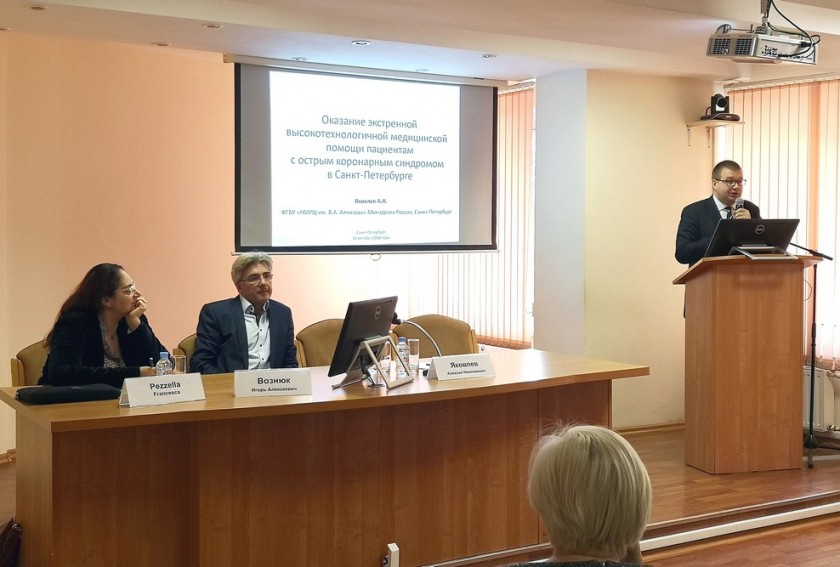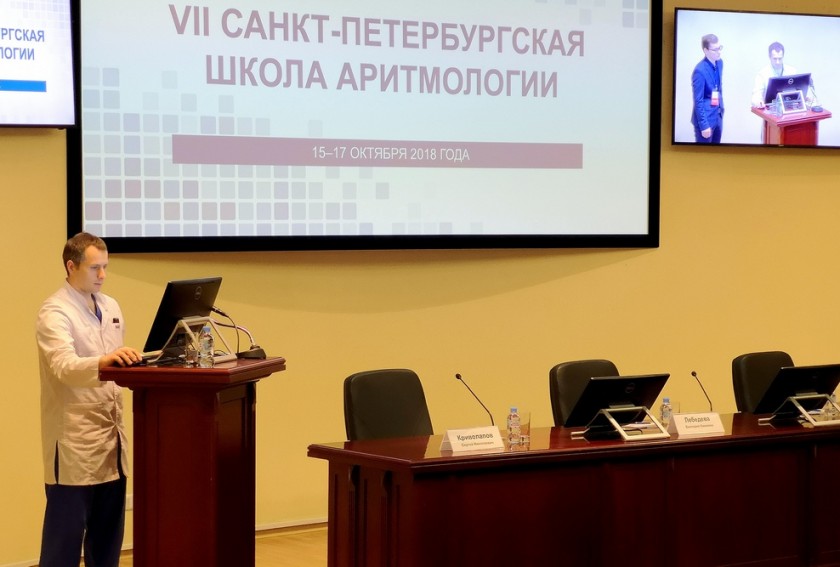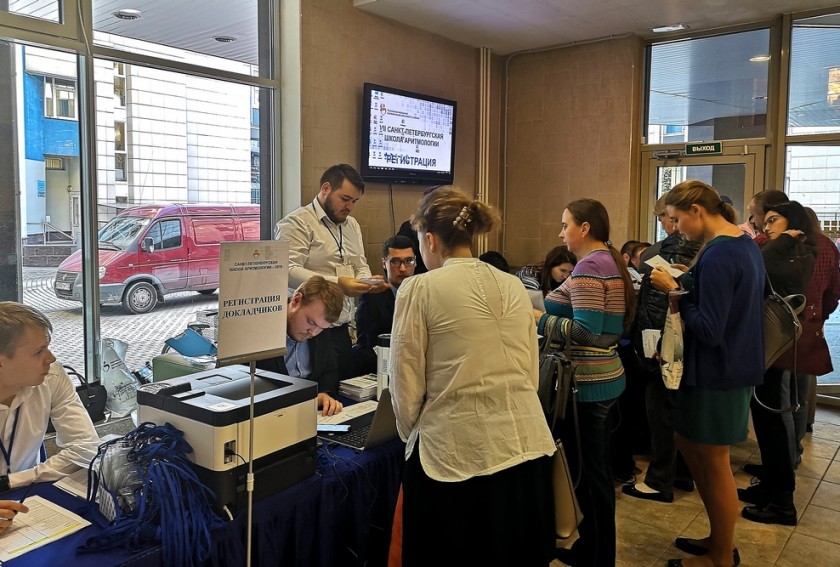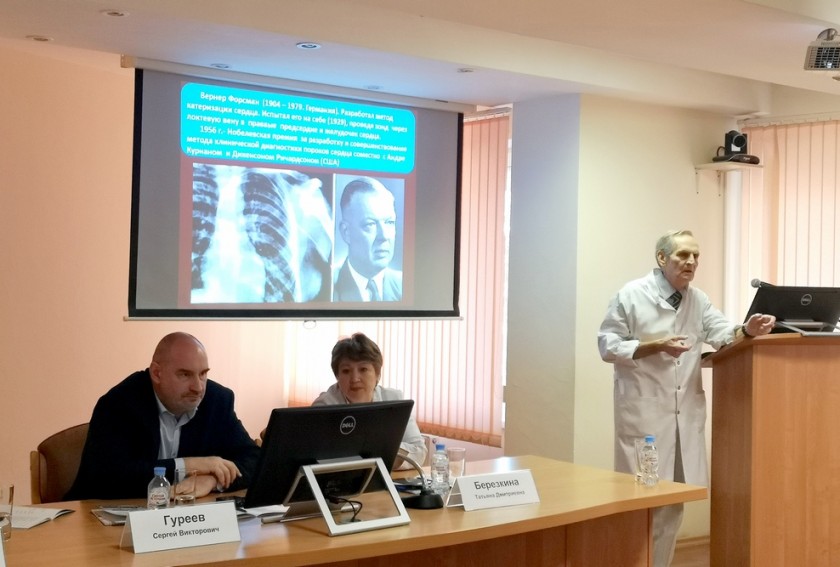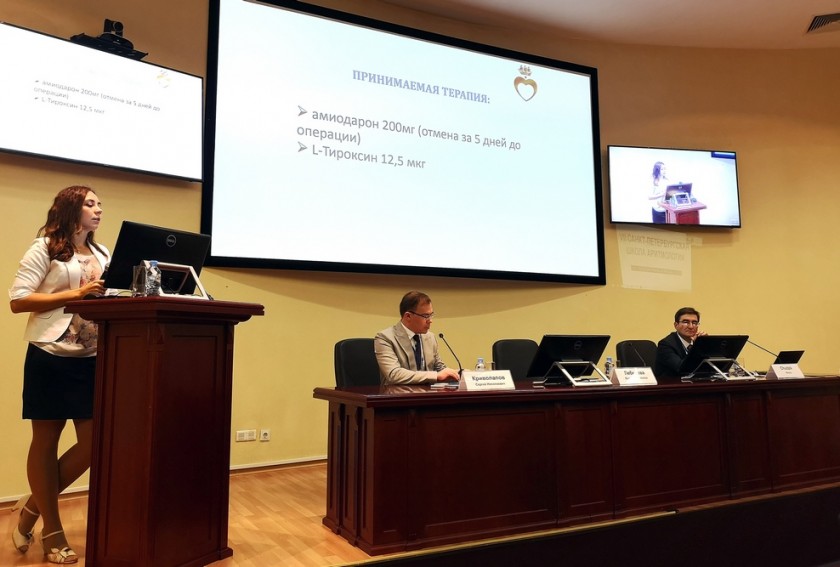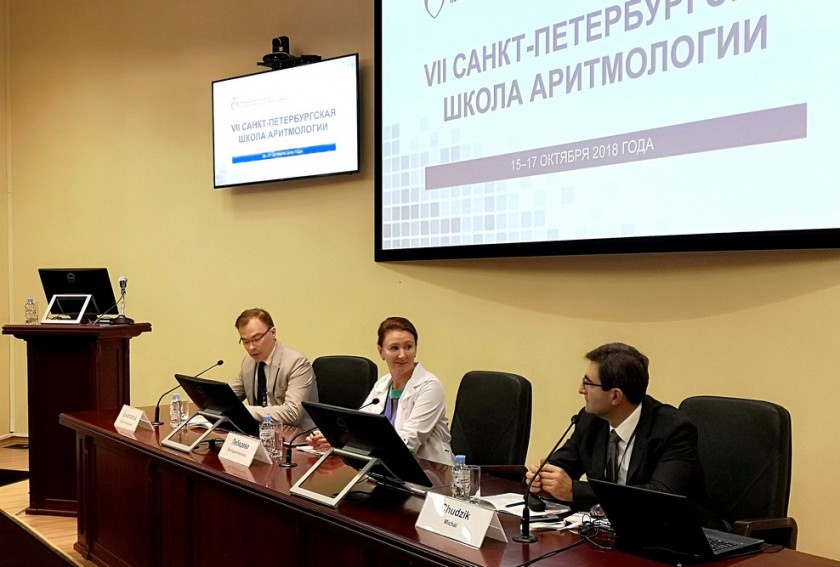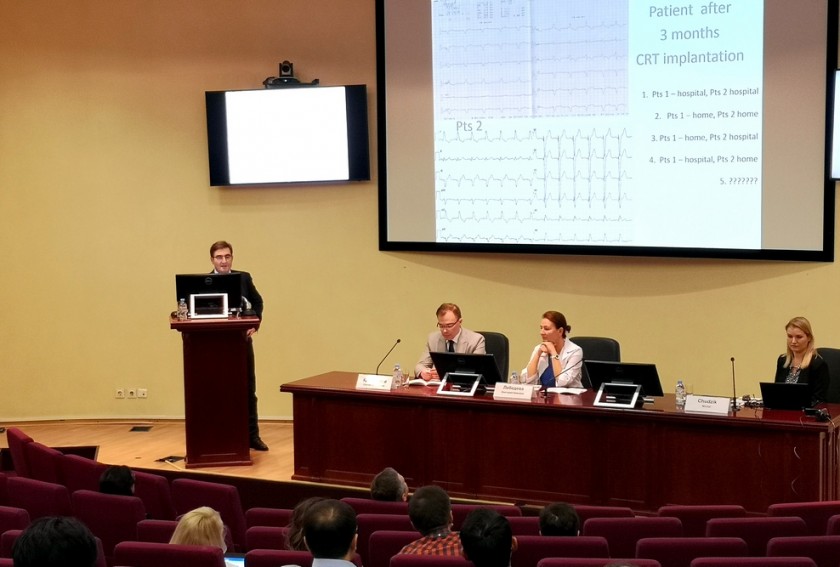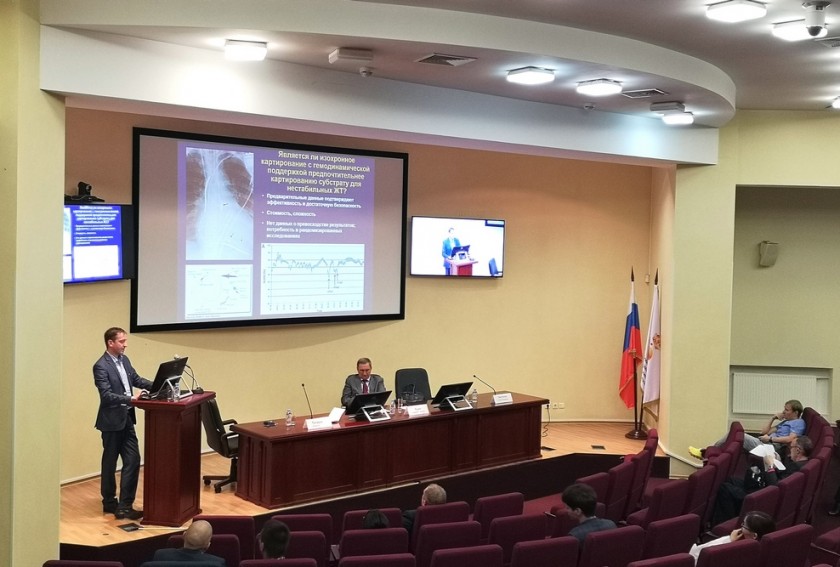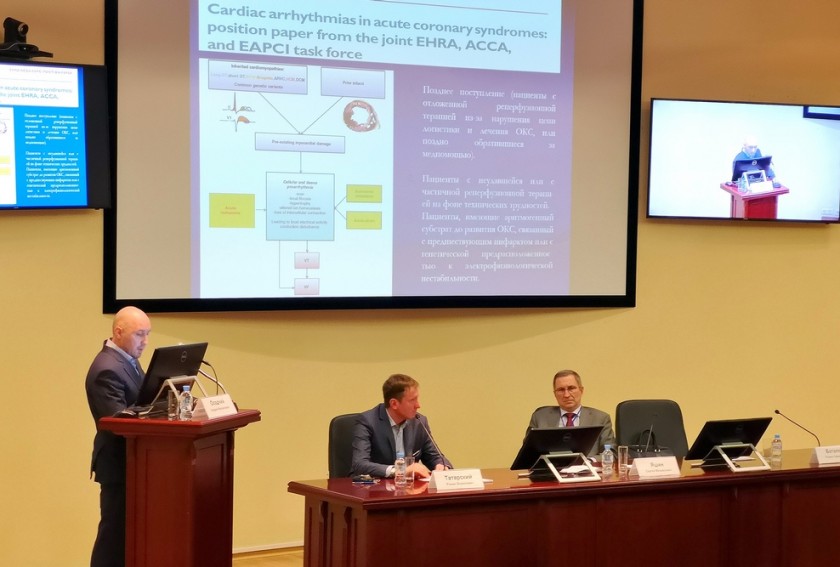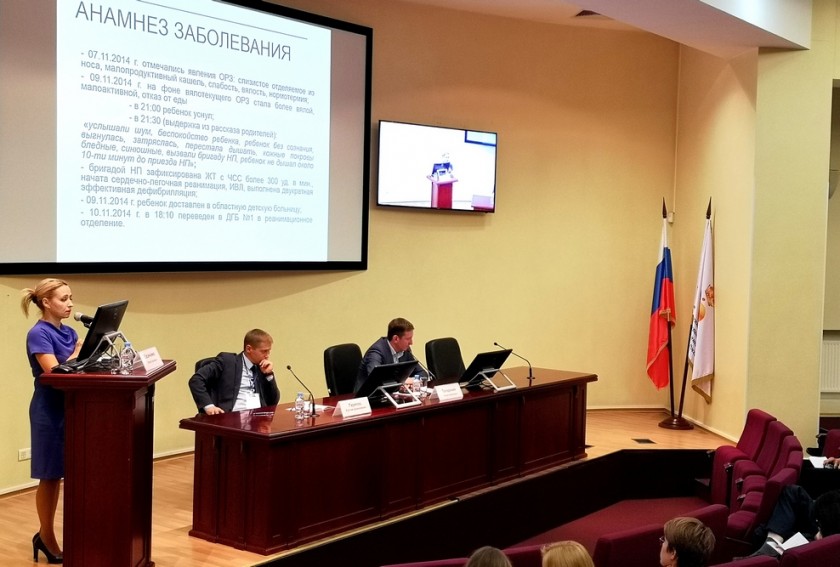On October 15–17, the Almazov Centre hosted the 7th Saint Petersburg School of Arrhythmology with international participation. More than 300 specialists took part in the School.
This year’s organizers are the Almazov Centre, the Russian Society of Cardiology and the Russian Scientific Society of Clinical Electrophysiology, Arrhythmology and Cardiac Pacing.
The versatile programme was aimed at cardiologists, cardiovascular surgeons, primary care physicians and functional diagnostic specialists. It covered various diagnostic methods, current aspects of pharmacological and interventional approaches to the treatment of arrhythmias and conduction disorders as well as prevention of complications.
The School included plenary and sectional lectures, symposia and roundtable discussions on the following topics:
- Medical visualization in arrhythmology
- Clinical arrhythmology / clinical course of arrhythmias
- Syncope
- Interventional therapy for bradyarrhythmias and heart failure
- Embolic stroke prevention
- Interventional therapy for tachyarrhythmias
- Interventional therapy / prevention of sudden cardiac death and heart failure
- Pediatric cardiology, congenital heart defects
- Modern mapping systems for arrhythmias
- Programming of implantable cardiac devices
- Management of patients after arrhythmology procedures
- Topical issues in arrhythmology for the medical staff of X-ray ORs
Prof. Dmitry Lebedev, Head of Arrhythmology Department at the Almazov Centre and Chairman of the St. Petersburg Department of the Russian Society of Arrhythmology, emphasized the powerful practical content of the School and stressed that in addition to the lectures by leading specialists on the major issues of modern arrhythmology and clinical guidelines, it featured online broadcasting from the ORs of surgery for complex arrhythmias and the procedure to implant a cardiac implantable electronic device for the treatment of heart failure.
Everyone had an opportunity to attend various master classes: on programming of implanted devices, electrophysiological techniques in the practice of arrhythmologist, high-density mapping for repeated pulmonary vein isolation and other relevant methods.
The School also featured the symposium coupled with the meeting of experts from cardiovascular centres organized by the Health Committee of St. Petersburg Government. This event devoted to high-tech emergency care was attended by international WHO stroke expert Dr. Francesca Pezzella, Neurologist, Stroke Unit, San Camillo Forlanini Hospital, Rome, Italy and European Stroke Organisation, and Prof. Igor Voznyuk, Chief Visiting Neurologist of the Health Committee of St. Petersburg Government. The practicing doctors from the city’s hospitals had an opportunity to discuss the European experience of emergency care development as well as the ways to improving care delivery in Saint Petersburg.

